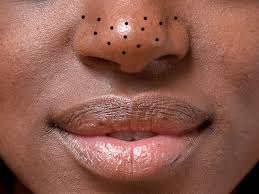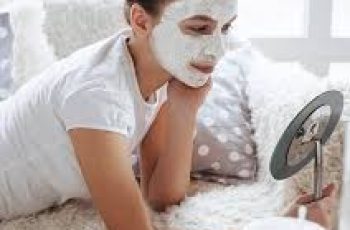
Should You Pop Your Blackheads? Dermatologists Explain the Best Ways to Remove and Prevent Them
Blackheads are one of the most common—and most stubborn—skin concerns out there. Whether they dot your nose, line your forehead, or cluster around your chin, almost everyone deals with blackheads at some point. And while they’re rarely painful, they can be deeply frustrating, especially if you’re aiming for clear, smooth skin.
That frustration often leads to one overwhelmingly tempting action: popping them. The urge to squeeze blackheads out is nearly universal—and undeniably satisfying in the moment. But according to dermatologists, it’s an urge that’s better resisted.
So, should you pop your blackheads? The short answer is no. The long answer involves understanding what blackheads actually are, why they form, and how to safely get rid of them (and keep them away) without damaging your skin. Here, board-certified dermatologists weigh in on what really works—and what habits to avoid.
What Exactly Are Blackheads?
Blackheads are a form of non-inflammatory acne called open comedones. They occur when a hair follicle or pore becomes clogged with a mixture of sebum (your skin’s natural oil), dead skin cells, and sometimes bacteria.
Dr. Melanie Palm, a board-certified dermatologist, explains it like this: “A blackhead is essentially a clogged pore that has been exposed to air. That exposure oxidizes the material inside, causing it to turn dark—hence the name blackhead.”
Unlike whiteheads, which are closed comedones, blackheads remain open at the surface. They are also distinct from inflammatory acne, such as papules, pustules, and cystic acne, which involve redness, swelling, and often infection.
The Temptation to Pop
We get it—there’s something almost irresistible about seeing a visible blackhead and wanting to squeeze it out. That small, dark dot just looks like it should come out easily, and when it does, it can be incredibly satisfying. Social media doesn’t help; pore-popping videos rack up millions of views, making extractions seem quick, easy, and harmless.
But experts strongly recommend against popping blackheads at home.
Why You Shouldn’t Pop Blackheads
According to Dr. Dustin Portela, another board-certified dermatologist, manually extracting blackheads without proper technique can do more harm than good. “When you try to pop blackheads with your fingers or tools, you risk damaging the skin, introducing bacteria, and even causing long-term scarring,” he explains.
Let’s break down the risks:
Skin trauma: Squeezing too hard or using unsanitized tools can injure the surrounding tissue.
Inflammation: Improper popping can turn a non-inflammatory blackhead into a red, swollen blemish.
Infection: Introducing bacteria into an open pore can lead to painful, pus-filled pimples.
Scarring: Picking at blackheads frequently can result in post-inflammatory hyperpigmentation or even permanent scars.
Dr. Palm agrees: “If you’re not trained in extractions, it’s best to leave them to professionals. Estheticians and dermatologists use sterile tools and techniques to safely remove clogged pores without causing damage.”
If you absolutely must do it yourself, Palm suggests wrapping clean fingers in tissue to minimize contact and avoid digging too deep. But even then, proceed with caution.
How to Prevent Blackheads in the First Place
The best way to deal with blackheads? Keep them from forming in the first place.
“Blackheads are caused by clogged pores, so prevention is really about keeping your pores clean and clear,” Dr. Palm says.
Here are dermatologist-recommended strategies for blackhead prevention:
1. Cleanse Twice a Day
This sounds basic, but regular cleansing is your first line of defense. “Wash your face twice a day, especially after sweating, to remove excess oil and dead skin,” Dr. Portela advises. Sweat and pollution can settle on your skin, further clogging your pores.
Choose a gentle cleanser that suits your skin type. If you’re acne-prone or oily, try a formula with salicylic acid, a chemical exfoliant that penetrates oil glands.
Recommended: CeraVe SA Cleanser – a popular choice containing salicylic acid and ceramides to exfoliate and maintain the skin barrier.
2. Incorporate Chemical Exfoliants
Exfoliation is key to preventing blackheads, but skip harsh scrubs. “Physical exfoliants can cause microtears, especially if used too often,” says Dr. Palm. Instead, opt for chemical exfoliants like:
Salicylic acid (BHA) – penetrates deep into pores to clear sebum.
Glycolic or lactic acid (AHAs) – help with surface cell turnover.
Retinoids – regulate skin cell shedding and reduce oil production.
Use chemical exfoliants 2–3 times per week, or as tolerated. These ingredients keep pores clear and reduce the buildup that leads to blackheads.
How to Treat Existing Blackheads
Already have blackheads? Don’t worry—they can be treated effectively without popping.
1. Use Salicylic Acid Products
Salicylic acid is widely considered the best over-the-counter ingredient for blackheads. As a beta hydroxy acid (BHA), it’s oil-soluble, meaning it can enter pores and break down the oil and debris clogging them.
Dr. Palm explains: “Salicylic acid is folliculotropic, so it penetrates deeply into the hair follicle and dissolves the components that form blackheads.”
Recommended product: Cetaphil Gentle Clear Triple-Action Acne Serum – combines salicylic acid with soothing ingredients.
2. Try a Retinoid
Topical retinoids are another powerhouse for blackhead treatment. They encourage skin cell turnover, helping to prevent pore blockages.
One of the most accessible options is adapalene, available without a prescription.
Recommended: Differin Gel (Adapalene 0.1%) – a dermatologist-favorite retinoid for clearing pores and preventing acne.
Caution: Retinoids can increase sun sensitivity, so always wear a broad-spectrum SPF 30 or higher daily while using them.
3. Use Pore Strips Sparingly
Pore strips, like Biore Deep Cleansing Pore Strips, can provide quick cosmetic results by pulling out visible blackheads. But they come with caveats.
“They remove more than just the blackhead,” Dr. Portela says. “They can strip away healthy skin cells and disrupt the skin barrier.”
Limit usage to once or twice per month, and always follow with a hydrating, calming product to reduce irritation.
When to See a Professional
If blackheads are widespread, persistent, or inflamed, it’s time to consult a dermatologist or licensed esthetician. Professional treatments may include:
In-office extractions
Chemical peels (e.g., glycolic acid or salicylic acid)
Microdermabrasion
Prescription retinoids (such as tretinoin or tazarotene)
Hydrafacials – use a suction-based device to clean out pores while hydrating the skin
These treatments can offer deeper, longer-lasting results than at-home options, especially when paired with a consistent skincare routine.
Lifestyle Habits That Can Help
In addition to a solid skincare regimen, a few daily habits can help keep blackheads at bay:
Avoid touching your face frequently, especially with dirty hands.
Change your pillowcase regularly to avoid buildup of oil and bacteria.
Disinfect your phone screen—it can transfer bacteria to your cheeks and jawline.
Avoid comedogenic (pore-clogging) makeup and skincare—look for products labeled “non-comedogenic.”
Final Thoughts: Popping Isn’t the Answer
Blackheads may be common, but popping them doesn’t have to be. In fact, popping often causes more harm than good—leading to redness, infection, scarring, and more visible pores. The better, dermatologist-approved path involves a combination of daily cleansing, targeted ingredients like salicylic acid and retinoids, and the occasional professional treatment.
So next time you spot a blackhead, resist the temptation to squeeze. Instead, treat it smartly, prevent more from forming, and enjoy clearer, healthier skin in the long run.


